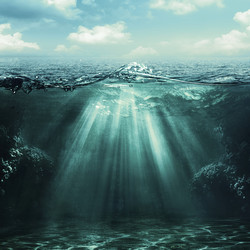INMARE and AQUASPACE showcased at Atlantic conference in Brussels
In May 2013, the EU, Canada and the USA signed the Galway Statement on Atlantic Ocean Cooperation which marked the launch of an alliance on international Atlantic research. Among the aims of the statement is increasing knowledge of the Atlantic and its dynamic systems by aligning ocean observation efforts, thus improving ocean health and stewardship and promoting sustainable management. A range of diverse Horizon 2020 projects have recently been launched which will contribute, in different ways, towards achieving the aims of the Galway Statement. INMARE and AQUASPACE were among those which were presented at last month’s conference The Atlantic – Our Shared Resource: Making the Vision Reality. INMARE The marine environment boasts extremely rich biological diversity and associated chemical and bioactive diversity; however so much of this treasure trove still remains unexplored. One area in particular that is largely untapped is the range of underwater microbiological resources. It is this area that the recently-launched INMARE (Industrial Applications of Marine Enzymes: Innovative screening and expression platforms to discover and use the functional protein diversity from the sea) project seeks to explore. INMARE was presented at the Atlantic conference by Jan-Bart Calewaert from SeaScape UK. Mr Calewaert explained how the project team will work together over the next four years to explore the Atlantic’s rich microbial genetic resources. Launched at the beginning of April, the project – coordinated by Professor Peter Golyshin from Bangor University in the UK – will work towards streamlining the enzyme discovery pipeline by, among other things, investigating the main bottlenecks along the value chain. It is hoped that INMARE’s work will establish marine enzyme collections with a high proportion of enzyme ‘allrounders’ which can be used in a range of applications. The consortium members are primed for the challenge – each organisation involved is a market leader in enzyme production and biocatalysis processes designed to efficiently deliver either safer pharmaceutical, cheaper agriculture or biobased (biopolymers) products. Together, the project partners already possess a large number of gene libraries, as well as cutting edge tools and facilities which can be used to extract genetic material and express and analyse or sequence genes. The Atlantic itself knows no borders so of particular added value, according to Mr Calewaert, is the team’s international dimension – among the team’s non-EU members are the University of Toronto in Canada and Uni Research and the University of Bergen in Norway and INOFEA and the University of Applied Sciences and Arts Northwestern Switzerland FHNW. More information on the project will soon be available on the upcoming INMARE project website. For more information, please see: INMARE http://www.inmare-h2020.eu/ AQUASPACE It may come as a surprise to learn that fisheries no longer provide most of the fish that we eat – aquaculture does. How and where does this growing area best fit into our oceans and freshwater lakes? The AQUASPACE (Ecosystem Approach to making Space for Aquaculture) project, which was presented by Professor Kenny Black from Scottish Marine Institute in the UK and Professor Jon Grant from Dalhousie University in Canada, will work for the next three years to explore this issue. The central goal of AQUASPACE is to provide increased space of high water quality for aquaculture by adopting the Ecosystem Approach to Aquaculture (EAA) and Marine Spatial Planning (MSP). Ultimately, it is hoped that pursuing this goal will deliver food security and increased employment opportunities through economic growth. The AQUASPACE team, comprising 21 partners, will adopt a case study approach at sites in Europe, North America, Australia and China, to produce a range of tools that will enable effective implementation of EAA and MSP to support the aquaculture sector. One important aspect of the project will be its emphasis on the co-production of knowledge which will be achieved by working in close collaboration with the aquaculture industry, coastal managers and planners other stakeholders. Speaking at the conference, Professor Black noted, ‘We will ask people what they want and need – we are not going to tell people what they need. We will have user a reference group comprising industry and the public sector and there will be a high level of information exchange within the case studies.’ Professor Grant added that AQUASPACE will try to address impending questions for scientists and for planners such as: What kind of scientific tools can we use in spatial planning? How can we manage aquaculture for sustainability at ecosystem scale? For further information, please visit: AQUASPACE http://www.aquaspace-h2020.eu/
Countries
United Kingdom



